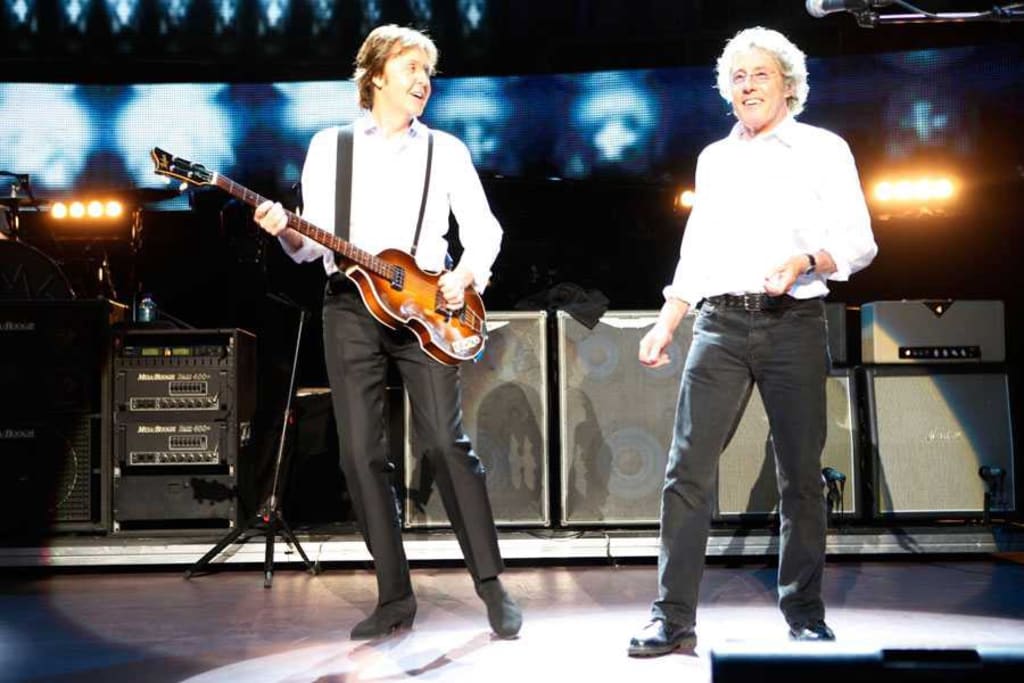
When we think of famous bands, we have an image of each member’s distinctive roles. More often than not, every member has clearly defined roles that they stick to from beginning to end. However, there have been times where some readjustments have had to be made.
In this list, we will look at four musicians who have had to switch roles in the bands they were in. Whether it be due to personal preference or outside factors, these artists originally entered their groups with a role very different from what they are known best for today.
Without further ado, let’s begin!
4. Paul McCartney:
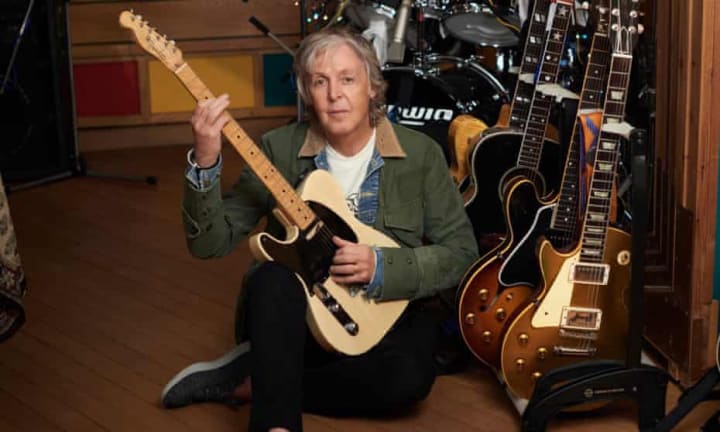
In the earliest days of The Beatles, the Fab Four as we know it today was a five piece group. John Lennon, George Harrison and Paul McCartney shared vocals and played guitar, Pete Best was on drums and Stuart Sutcliffe acted as the band’s bassist.
However when Sutcliffe left the group in 1961, the responsibilities of being bassist was passed over to McCartney. Although he had some experience on the bass before this, McCartney was initially reluctant to take over full time. He felt that bassists were often overshadowed and he had a tough time adjusting to Sutcliffe’s bass, which he had to play upside down because he was not allowed to change the strings to suit his left handedness.
Eventually however, McCartney began to enjoy his role on the bass and took pride in his position as bassist when The Beatles met Elvis who was impressed with him. Although he would later become known as a multi-instrumentalist, McCartney’s Hofner bass will always remain his most iconic instrument.
3. Joey Ramone: Drums to Vocals
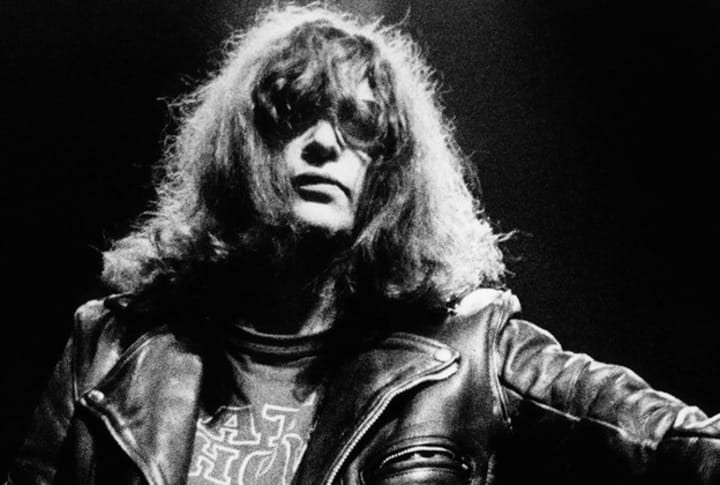
Music’s greatest on-stage family, fans of The Ramones would find it difficult to picture the group without the Father of Punk himself front and center on stage. However, the band’s earlier line-up was quite different.
Initially, bassist Dee Dee Ramone also acted as the group’s lead vocalist. However, Dee Dee found it difficult to play bass and sing at the same time. The rigors of touring were also beginning to take a toll on Dee Dee’s voice and he decided to stay exclusively on bass.
Thus, Joey, who was the band’s drummer at the time was tasked with taking over as the lead singer of The Ramones. However, Joey had an issue of his own. He could not sing and play drums at the same time. Thus, the band’s manager Tommy Erdeyli took over on the drums as Tommy Ramone.
This shift in responsibilities led to The Ramone’s most iconic line-up and Joey Ramone in particular was able to take his place as a musical legend. Had Dee Dee stayed on bass and Joey on drums, things may have been very different for the once struggling group.
2. Roger Daltrey: Guitar to Vocals
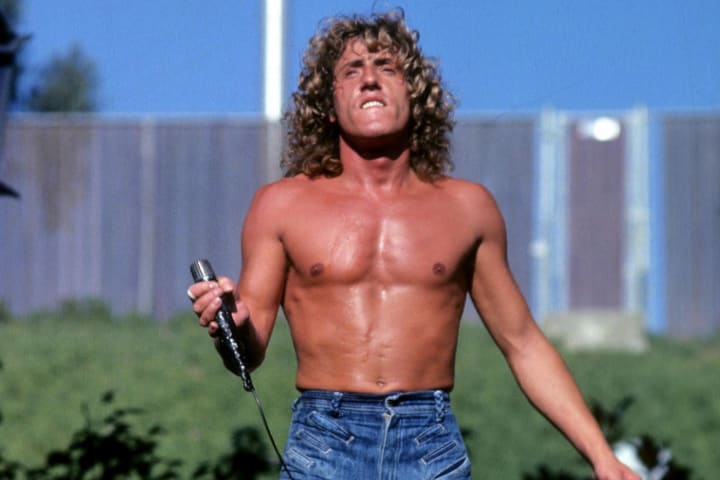
Roger Daltrey is hailed as one of the greatest front-men in the history of music. With his powerful stage presence and equally strong vocals, Daltrey has been wowing crowds and performing at a high level to this day. In fact, we cannot picture The Who without him on the mic.
That makes it all the more shocking that this role was never intended for him to begin with. Before The Who became the group that we know it as today, they were known as the detours. A five piece group which featured Daltrey on lead guitar, Pete Townshend as a secondary guitarist, John Entwistle on bass, Harry Wilson on drums and Colin Dawson on vocals.
Eventually this line-up did not last with Wilson and Dawson departing and Keith Moon being added as the new drummer. Without a lead singer, Daltrey took over as the vocalist of the four piece group while Townshend became their sole guitarist. As singer, Daltrey rarely played instruments for the group from that point.
Although he was now the band’s frontman, Daltrey also gave up his role as the group’s leader to Townshend, who’s creativity took the band to immortal success. It was a good deal as Daltrey’s powerful vocals were the perfect medium to help translate Townshend’s genius onstage. Had these transitions not taken place, music as we know it today may be very different.
Phil Collins: Drums to Vocals
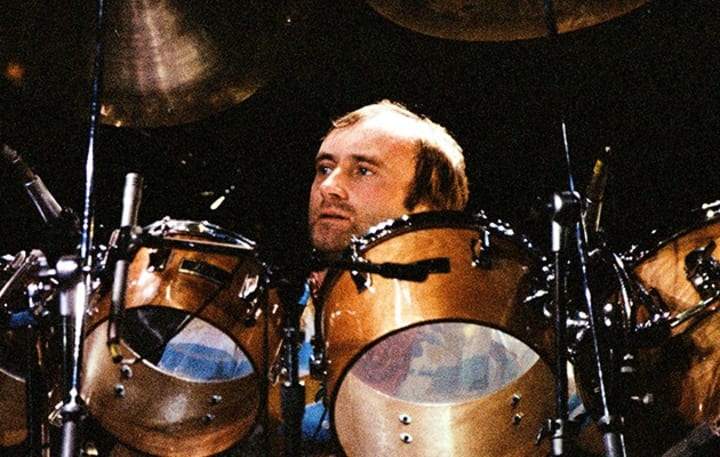
Perhaps the most well known role shift in recent history, Phil Collins initially started out in Genesis as the group’s drummer. In fact, Collins had always been a drummer up to that point and had to pass a grueling audition process to be accepted into the elite group.
As Genesis became more successful however, lead singer Peter Gabriel decided to leave the group in order to focus on his personal life and to begin a solo career. Not wanting to break the momentum that came with their growing success, Genesis began to search for a new singer.
After auditioning over 400 vocalists, the group realized that Collins himself was the perfect replacement. Having provided backup vocals for this audition, Collins decided to properly demonstrate his skills to his bandmates and was promoted to the band’s lead singer.
Collins was a good replacement for Gabriel and was able to distinguish himself from his predecessor. However, just like Gabriel before him, the growing success of the group prompted Collins to embark on a solo career. It was then that Collins began to really transition away from drums and focus solely on his vocals. Many attribute Collins’ success as a solo artist to his time as Genesis’ new lead singer.
With injuries preventing him from properly playing the drums again, Collins has been fortunate to have made the transition to lead vocals a long time ago. Never has a role switch in a band ever benefitted an artist as much as it did Phil Collins.
That does it for this list. If you made it this far, I thank you for taking the time to read this!
This list really highlights the abilities of some of the greatest musicians in history. It shows that being a good musician does not mean confining oneself to one role but being able to also adjust and switch about when needed. It takes exceptional talent to take on different roles especially when departing from one you are comfortable with.
If there are any similar stories like this that I have missed out, do let me know. Until then, take care!
9
About the Creator
Isa Nan
Written accounts of life, death and everything in between






Comments
There are no comments for this story
Be the first to respond and start the conversation.